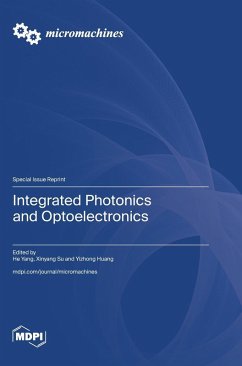
FUNDAMENT LASER OPTOELEC (2ND ED)

PAYBACK Punkte
51 °P sammeln!
This textbook is based on a course given by the first-named author to third and fourth year undergraduate students from physics, engineering physics and electrical engineering. The purpose is to introduce and explain some of the fundamental principles underlying laser beam control in optoelectronics, especially those in relation to optical anisotropy which is at the heart of many optical devices. The book attempts to give the reader the background knowledge needed to work in a laser, optoelectronic or photonic environment, and to manage and handle laser beam equipment with ease. In this editio...
This textbook is based on a course given by the first-named author to third and fourth year undergraduate students from physics, engineering physics and electrical engineering. The purpose is to introduce and explain some of the fundamental principles underlying laser beam control in optoelectronics, especially those in relation to optical anisotropy which is at the heart of many optical devices. The book attempts to give the reader the background knowledge needed to work in a laser, optoelectronic or photonic environment, and to manage and handle laser beam equipment with ease. In this edition, recent research results on modern technologies and instruments relevant to laser optoelectronics have been added to each chapter. New material include: chirped pulse amplification for petawatt lasers; optical anisotropy; physical explanations for group velocity dispersion, group delay dispersion, and third order dispersion; an introduction of different types of laser systems; and both optical isotropy and anisotropy in different types of harmonic generation. Theories based upon mode-locking and chirped pulse amplifications have become increasingly more important. It is thus necessary that students learn all these in a course devoted to laser optoelectronics. As such, Chapter 12 is now devoted to mode-locking and carrier-envelope phase locking. A new chapter, Chapter 13, which focuses on chirped pulse amplification has also been added.














